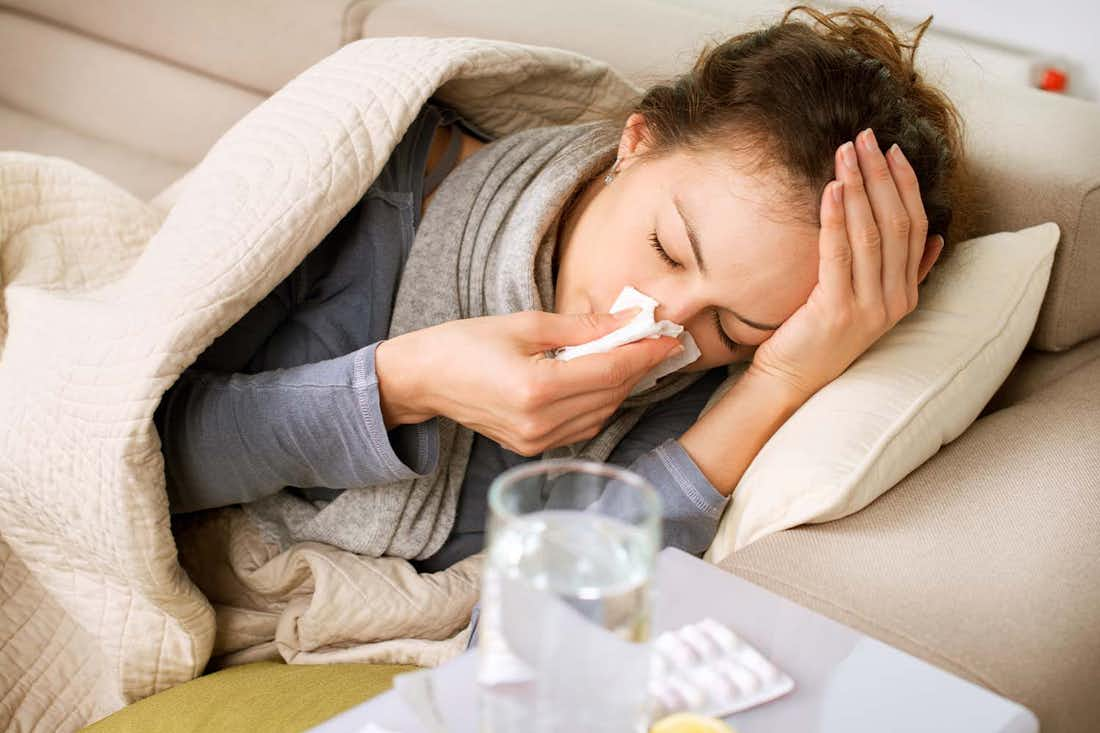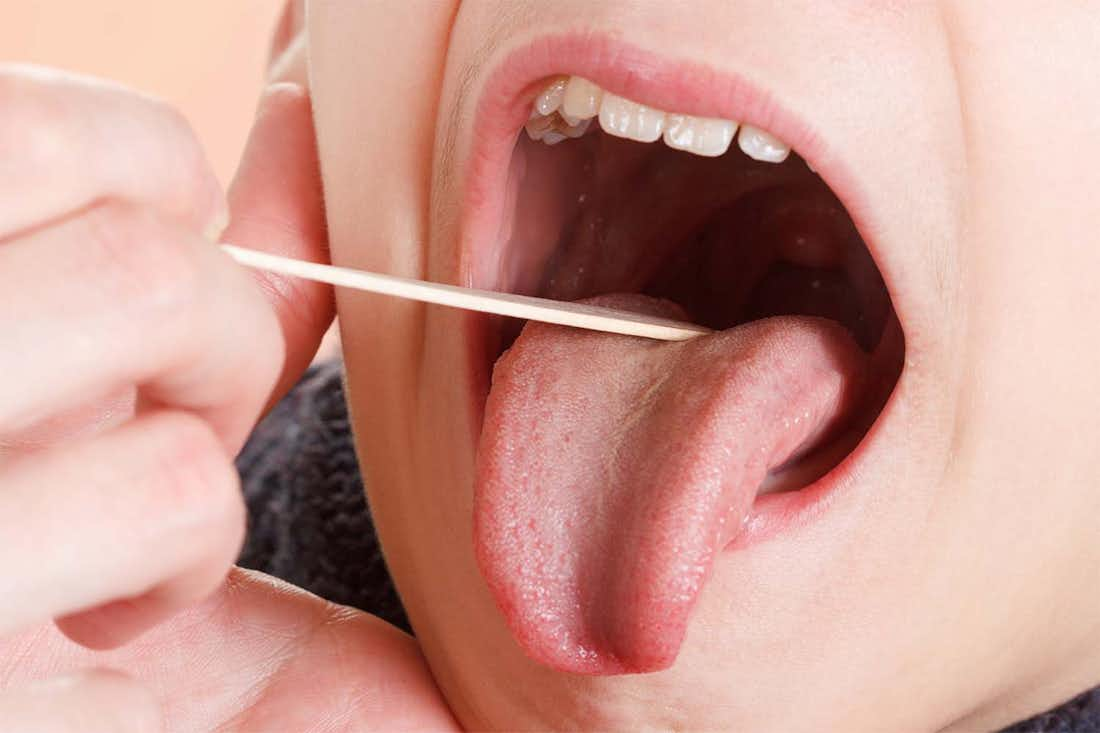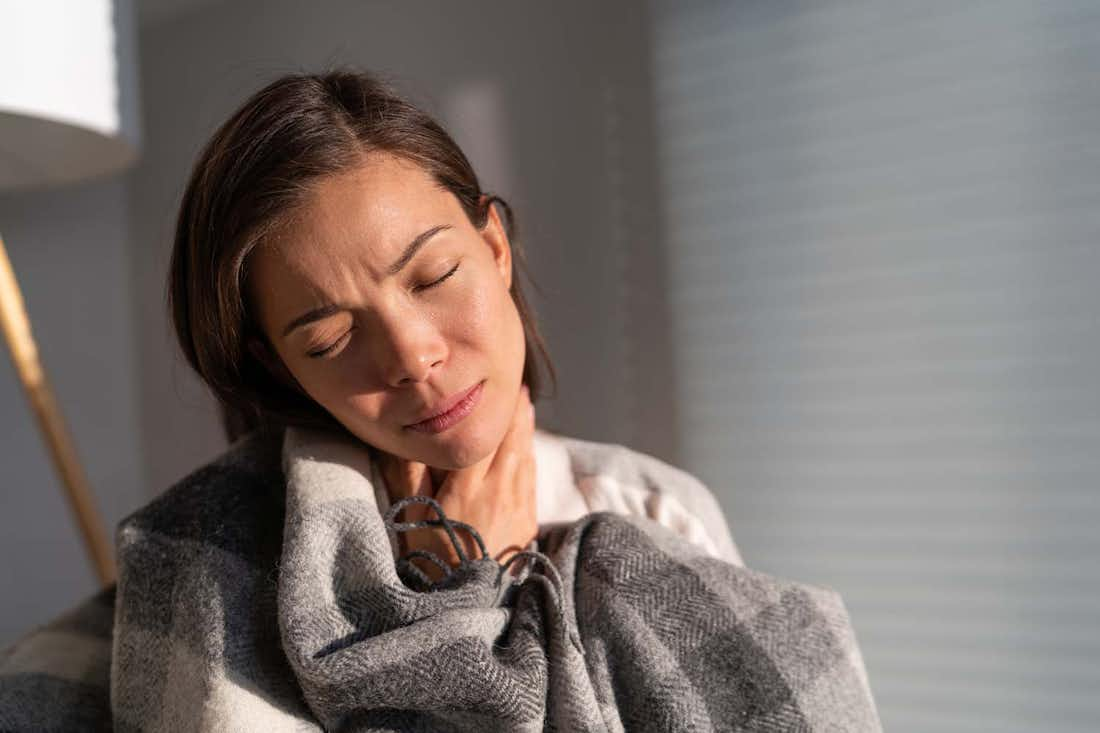Sep 21, 2021
Options for Seasonal Allergy Relief
5 minute read
They say April showers bring May flowers. That’s because seasonal allergies start to ramp up throughout the late spring and early summer months. Our immune systems can feel like they are constantly being attacked. With the pollen count being at an all-time high during the warmer months, we can still be affected by allergy triggers year-round.
You probably want to stop and smell the flowers, but you’ll scare away the bees if you’re sneezing all over them. Watery eyes, scratchy throat, and extra mucus from nasal congestion are never fun to deal with. The good news is that it’s just as easy to eradicate those pesky seasonal allergy symptoms as it is to get them. So say goodbye, sneezy noses, and say hello to sunshine and roses. Here are some simple and effective options for seasonal allergy relief.
1. Antihistamines (Allergy Medicine)
If you’re a seasonal allergy sufferer, you’ve no doubt given antihistamines a swing (or swallow).
Histamines are naturally occurring hormones in your body that are released when it detects something harmful. But for seasonal allergies, your body gets a little confused and thinks that things like pollen or dander exposure are harmful. This leads to sneezes, itchy eyes, or runny noses as it works to expel the perceived threat.
Antihistamines block the production of histamines to prevent those symptoms from happening. It feels like magic, but it’s just science! They are one of the most effective ways to get allergy relief. So why don’t people use them more often? We’ll tell you: they’re expensive. At least, they used to be.
At Cleared, it’s our mission to help you nip allergies in the bud by offering competitive pricing for generic antihistamine medications that can help keep your allergies at bay. Generic versions of brand name antihistamines treat your symptoms at a fraction of the cost.
Types of Antihistamines
Common antihistamines include loratadine (often sold as Claritin), diphenhydramine (often sold as Benadryl), cetirizine (often sold as Zyrtec), and fexofenadine (often sold as Allegra).
While all of these medications have the same basic function—blocking histamine production—each medication has unique advantages. Knowledge is power, and learning more about these antihistamine options can help you determine which is right for you:
Diphenhydramine: A first-generation antihistamine, diphenhydramine helps relieve nose itching and congestion. However, diphenhydramine may cause drowsiness, and it may cause more side effects than later-generation antihistamines.
Cetirizine: A second-generation antihistamine, cetirizine offers similar benefits to diphenhydramine with fewer side effects. While both offer relief for seasonal allergies, cetirizine may also help manage hives and itchy skin.
Fexofenadine: This antihistamine is non-drowsy and long-lasting, making it a great choice for daytime relief.
Levocetirizine: For an even longer lasting relief, levocetirizine is a next-generation antihistamine that’s more powerful than many other options on the market. Take this for itchy, congested noses and itchy skin.
Loratadine: Another non-drowsy option, loratadine helps with itchy skin, itchy noses, and congestion while helping you stay clear throughout the day.
2. Nasal Spray and Nasal Rinse
Allergies can make your nose congested and stuffy. It definitely makes it hard to breathe, and it feels super uncomfortable. But it also makes it hard to taste your favorite foods, which is a major problem when the ice cream truck rolls around the corner.
Nasal sprays shrink the blood vessels in your sinuses, which reduces the discomfort that causes them to feel clogged up. They’ll make your nostrils less congested over time. Best of all, our nasal sprays are affordable just as much as those good ol’ antihistamines.
In addition to nasal spray, nasal rinses like a neti pot can help open your nasal passages and get you back to breathing sans stuffiness. Make sure you use a neti pot over a sink or a bowl to reduce any spilling that may occur.
Types of Nasal Spray
Like oral antihistamines, nasal sprays have multiple different forms with unique benefits.
We’re breaking down the three major types of nasal sprays—azelastine (often sold as Astelin or Astepro), budesonide (often sold as Rhinocort), and fluticasone propionate (often sold as Flonase)—to help you make an informed decision:
Azelastine: This nasal antihistamine can block histamine production, just like its oral counterparts. It works directly in your nose to help soothe congestion while combating the primary cause of your symptoms.
Budesonide: Budesonide is an anti-inflammatory spray whose primary function is easing inflammation caused by allergies. It can be taken every day, and it’s the only nasal spray that’s recommended during pregnancy.
Fluticasone propionate: Similar to budesonide, fluticasone propionate is a corticosteroid anti-inflammatory spray. Futicasone propionate is much more potent than budesonide and may work faster than its counterpart.
3. Know Your Triggers
One of the best ways to prevent seasonal allergies from ruining the day is to just avoid the things that cause them in the first place. Now, that doesn’t mean you should lock yourself inside until the first sign of a winter snowfall. But what it does mean is that you should learn what exactly causes you to get the sniffles.
You can do this by testing yourself to see what allergens you respond to. You might find that you’re not allergic to pollen but instead grasses. It might turn out to be something other than seasonal allergies in the first place!
4. Essential Oils
Among natural remedies, essential oils are essential for bringing relief to a variety of symptoms. Not only can the soothing scents of eucalyptus or peppermint soothe your stress, but they might also be helpful for opening your sinuses and clearing out a stuffy allergen-filled nose.
Lavender oil, peppermint oil, lemon oil, and eucalyptus oil have all been found to possess anti-inflammatory or decongestant abilities. It’s like you’re filling the air with a bunch of good stuff, so it fights off the nasty stuff.
5. Eye Drops
Allergy symptoms look different for everyone. Some people cough, some people sneeze, and some people get a congested nose. While we know how frustrating that can all be, it’s hard to argue that the most uncomfortable symptom is itchy, watery, red eyes. It’s like constantly having a little tickle feather in your eyeballs. Though, it’s not nearly as fun as that sounds.
If seasonal allergies make your eyeballs turn against you, eye drops are a great way to alleviate the pain. These are antihistamines that prevent the over-reaction to histamines on the outer layer of your eyeball.
Together, oral antihistamines, nasal sprays, and eye drops are a powerful trio that can help you stop and smell the roses—without allergy symptoms.
Types of Eye Drops
If itchy eyes are keeping you from enjoying the great outdoors, eye drops can help you find relief.
There are two eye drop options that reign supreme: ketotifen (often sold as Zatador) and olopatadine 0.2% (often sold as Pataday). Cleared offers both generic brands at competitive prices, so you can round out your allergy-fighting regimen without breaking the bank:
Ketotifen: Ketotifen is an OTC medication that helps soothe seasonal allergies and allergy-related itchy eyes. It works within minutes, and it has fewer side effects than allergy pills that affect the entire body.
Olopatadine: Olopatadine is a prescription medication that works within 30 minutes to relieve allergy-related eye irritation. Like ketotifen, olopatadine only affects the eyes, meaning it has fewer side effects than oral medicines. You can use olopatadine once in the morning for all-day relief.
6. Keep It Clean
Sometimes, the most effective methods are also the simplest in nature. Allergens like pollen or dander like to stick to your clothes and skin, constantly invading your body and setting off that histamine reaction.
If you’re prone to seasonal allergies, it might be that you just need to clean up a little more often. Consider showering when you come inside after an extended period of being out or change your clothes after an intense outdoor gardening session. This helps to remove excess allergens, too, hopefully, bringing you some relief.
This also means keeping your windows and doors closed so those pesky pollen perusers can’t pursue their path into your perfect abode. Your home needs to be a non-allergy safe space (unless you have pets, but that’s a topic for another time).
It's never a bad idea to vacuum your carpets, as well as changing your air filters out to prevent mold (mold spores) from developing. If you want extra allergy protection in your home, opt for a high-efficiency particulate air filter (HEPA filter). If you have asthma, this may be a good option for you.
Clearing Things Up
Seasonal allergies are an unfortunate byproduct of the spring and summer months, but they don’t have to stop you from getting outside and enjoying the fresh air. Over-the-counter medications like oral antihistamines can bring you relief from the symptoms fast.
You also have plenty of at-home allergy relief options like essential oils or frequent showers to wash away the pollen. It’s also great to learn what triggers your flare-ups so you can work to avoid them in the future.
If you want to get a handle on your seasonal allergies, Cleared offers antihistamine options to help you gain control of your allergies.
Sources:
Antihistamines: Definition, Types & Side Effects | Cleveland Clinic
Authors

Dr. Payel Gupta
Medically reviewed by Dr. Payel Gupta



